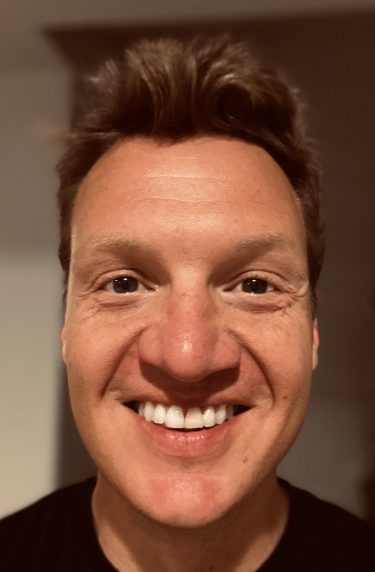“No one dies wishing they spent more time online:” Author of Log Off (that’s me!)
 I was recently interviewed by Metro International, the world’s largest free daily newspaper, about my book. This is what I said and thought you might enjoy:
I was recently interviewed by Metro International, the world’s largest free daily newspaper, about my book. This is what I said and thought you might enjoy:
In your book description you say that excessive “internetting,” smartphoning, and social media make us miserable, Why do you think that?
That’s not my opinion. There’s an overwhelming amount of research that proves that virtual socialization is no substitute for the real thing. In fact, it’s even worse since infinite scrolling on screens is either curated highlights that make our own average lives feel worse by comparison, or endless online news that make the world sound a lot more worse and scary than it really is.
In this connected world, do you think you can really manage to live disconnected? How?
As outlined in my book, not only can we successfully disconnect, we can thrive more offline when we find a good balance of it. Smartphones, the internet, and social media aren’t all bad. But they can be if we allow them to be. The trick is setting boundaries in ways that allow them to work for us instead of letting them interrupt and dictate our everyday lives.
What would be some of the main strategies you propose in your book to achieve offline balance in an online world?
Turn off all of your phone’s visible and audible alerts unless they’re from your spouse or children, or live phone calls, which is how all emergencies are still communicated today. Even the CEO of Apple follows this advice! I know that sounds crazy, but I’ve been doing it for 10 years and it lets you accomplish so much more in a day than you otherwise would, and it lets you dictate who and what you let into your life. Unless you have an on-call job that requires it, I would even recommend turning off texts from your boss and notifying them that you’re switching voice calls only for phone interruptions. Even then you should screen unknown calls if you’re busy doing something.
Lately, devices and apps have emerged that promise to help fight Internet addiction.
Apple and Google’s screen time apps are very helpful but not really a cure. They can help set limits and boundaries which our good, but I was just speaking to someone the other day saying they were just going in and exempting the boundaries or asking for an extension. You have to want to disconnect to be able to do it. And as I say in my book, you must find enjoyable and exciting offline habits to replace the void left from leaving digital distractions.
And what do you think about clinics to cure internet addiction?
I think they can be a good thing, especially in extreme cases. But the admitted patient must truly want it and find viable offline replacements to reducing their screen time.
What advice would you give to a person to achieve the balance you set out in your book?
No one dies wishing they spent more time online. We must make plans and fill our day with offline pursuits if we really want to log off. In addition not turning off alerts, we must start reaching for offline hobbies and passions that excite us to keep us off our screens. It’s hard to do. The worlds smartest minds from Silicon Valley are all conspiring against us and succeeding in getting us to click and scroll for several hours each day. But it is possible. I’ve been practicing what I preach in Log Off for 10 years. The act changed my life for the better. I still use the internet, an iPhone, and private social media to stay in contact with friends, but I have cured myself of FOMO and have done things that I never would have otherwise if I were stuck in an endless cycle of screen refreshes like I was before.
